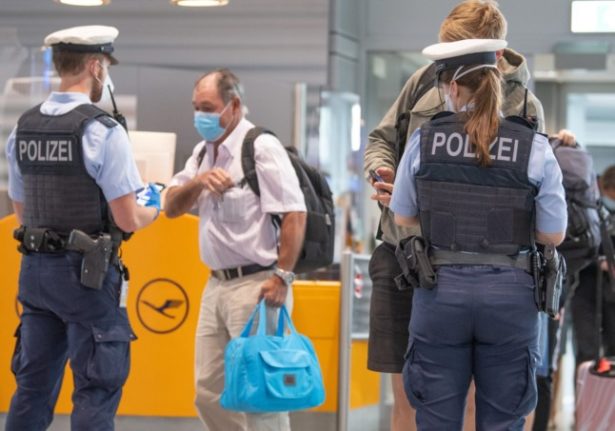What’s happening?
Health Minister Jens Spahn announced last week that fully vaccinated people entering Germany from so-called ‘virus variant of concern’ zones, such as Brazil and South Africa, will no longer have to isolate for 14 days – if their vaccination protection is effective against the virus variant in the area they are travelling from.
At the moment everyone coming from countries classed as ‘virus variant’ by Germany has to complete a 14-day self-isolation with no option to cut it short with a negative Covid test, regardless of whether they’re vaccinated or not.
But critics had questioned why fully vaccinated people could not shorten the quarantine period.
The new rules, however, do not impact the travel ban on ‘virus variant areas’. That remains in place, with only a few exceptions for entering Germany from these countries, such as for citizens or residents.
READ ALSO:
- Brazilian workers and students demand end to travel ban
- ‘Our lives are at a standstill’: South Africans urge Germany to lift travel ban
The testing rule has also not changed. Everyone coming from a ‘virus variant area’ still has to provide proof of a negative test before entering Germany – even if you are vaccinated or have recovered from Covid-19.
READ ALSO: How Germany’s latest rules on foreign travel affect you
So will vaccinated people have to quarantine when entering Germany from abroad?
That depends. The general rule is that vaccinated people do not have to quarantine when coming into Germany from ‘basic risk’ or ‘high incidence’ areas if they submit proof of vaccination.
From July 28th, the fully-jabbed entering Germany from ‘virus variant’ areas will not have to quarantine in some cases.
“For persons who have been fully vaccinated with a specific vaccine published on the website of the Robert Koch Institute (RKI), the isolation ends with the submission of their vaccination certificate,” a Health Ministry spokeswoman told The Local.
Before entering Germany, travellers can submit proof of their vaccination on the online entry portal site.
“The prerequisite is that the Robert Koch Institute has determined (and published on its website) that this vaccine is sufficiently effective against the virus variant that led to the classification of the area as a virus variant area,” the spokeswoman added.
In other words, people who’ve been jabbed with a vaccine that the RKI says works against the Covid-19 variant, will be given an exemption from self-isolating.
According to German authorities these people “may end their quarantine after having submitted proof of vaccination”. Authorities added: “However, they still need a negative test result to enter Germany.”
READ ALSO: ‘Not worth it’: German holidaymakers cancel trips to Covid-hit Spain
The Local requested a link to the RKI’s published information on the effectiveness of vaccines against the different Covid variants, but the Health Ministry spokeswoman was unable to supply this information.
We contacted the RKI and a spokeswoman told us that the RKI “monitors the possibility of new variants/the circulation of variants closely”.
“So far, there is no exemption; no list has been published,” she said, adding: “In its contact management, RKI recommends in cases in which people have clearly been exposed to Beta or Gamma that they are quarantined – even if they are fully vaccinated or recovered (from Covid).”
When are the rules in place until?
The latest quarantine regulations last until at least September 10th 2021.
Are any other rules changing?
The German government has also made it clear that if a ‘variant area’ is downgraded to either a ‘high incidence area’ or ‘basic risk area’ during the self-isolation period, then the rules for the new classification apply immediately. In that case it’s possible to shorten the quarantine period – even for unvaccinated people.
If the area is taken off all RKI’s risk lists – so-called de-listing – then domestic quarantine ends automatically, said the German government.
Earlier this summer Germany downgraded the risk status of five countries – including the UK and Portugal – from ‘virus variant’ areas to ‘high incidence’ areas because the Delta variant had also become widespread in Germany.



 Please whitelist us to continue reading.
Please whitelist us to continue reading.
Member comments